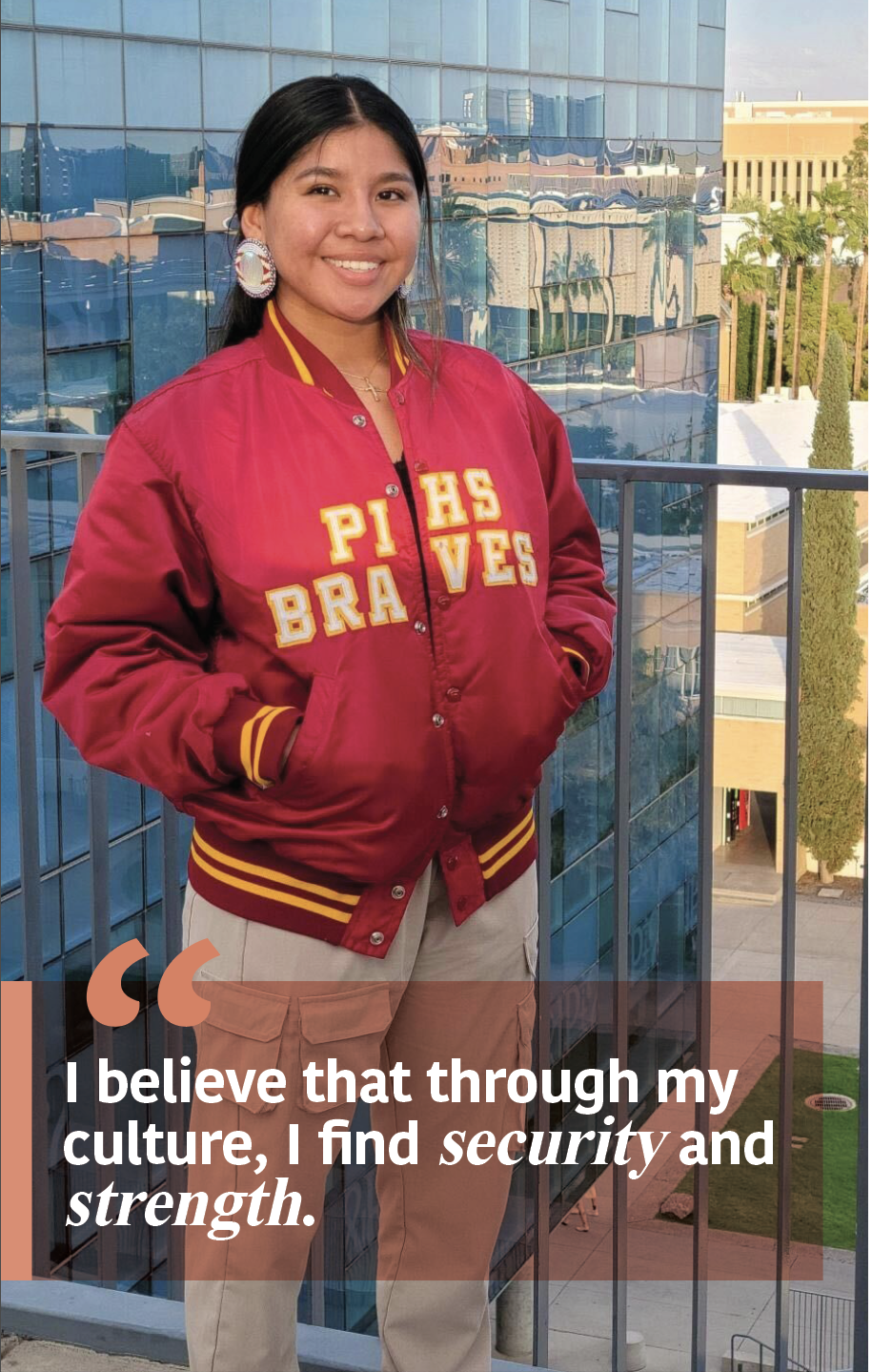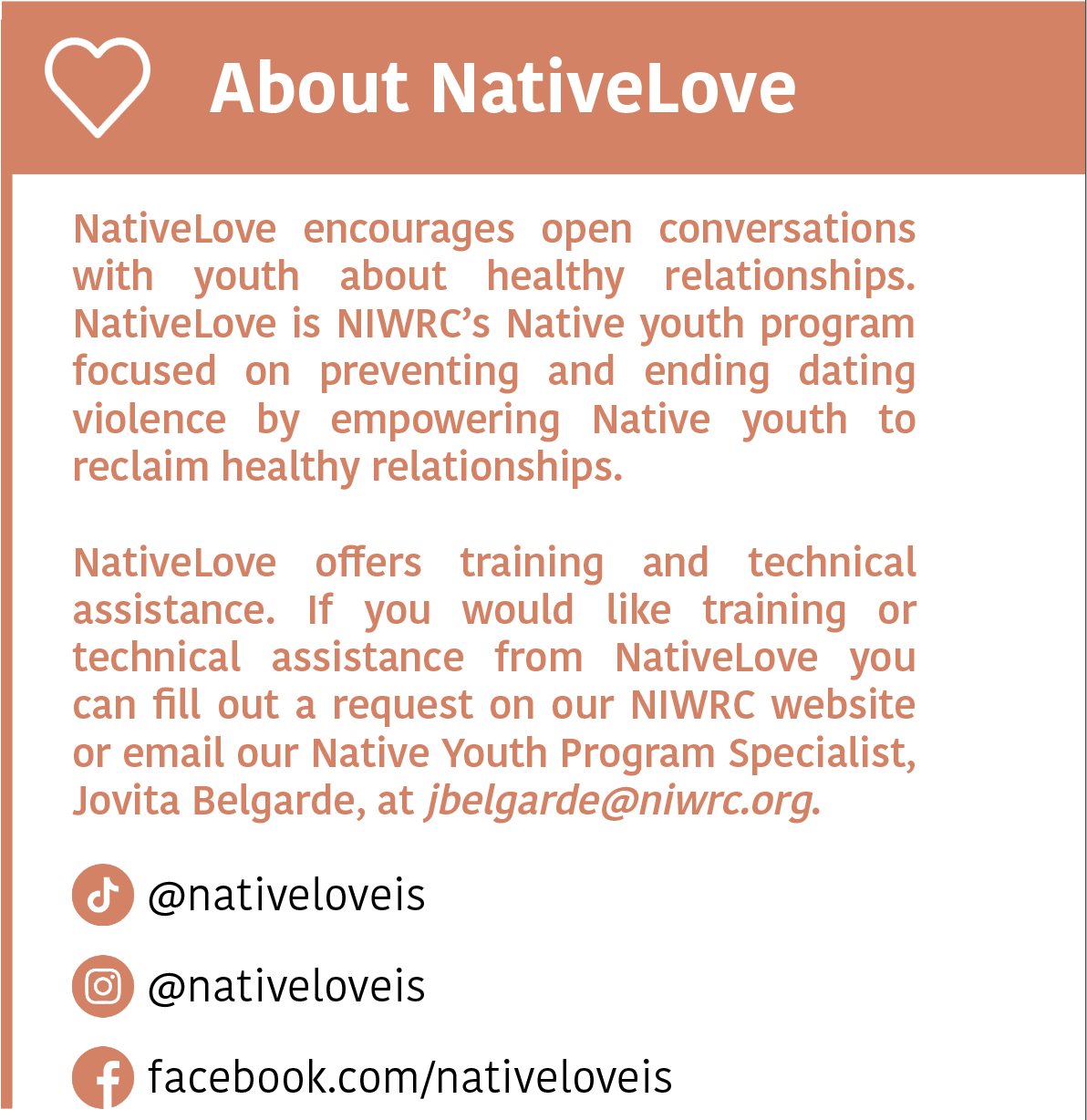NativeLove: My Relationship With You

We are wet clay and our environment molds us into who we are as individuals. Girls are told that we look for a man that resembles our fathers and boys look for women that care for them like their mothers. What we aren’t told is that we also look for those imperfections that our household created. An absent father. One may crave affection and approval from another. A judgmental mother. A person may have the inability to build an emotional attachment or demonstrate affection. Overworked parents. You may not see them often. A person may look for another that gives them the attention that they are missing at home. How we love someone is taught through our environment. The right and wrong way to love. Consent and boundaries are the foundation of any healthy relationship.
“They were asking for it”, “did you see what she was wearing?”, or even “boys will be boys” are sayings engraved in my mind like carvings on stones. Permanent. We are taught to detach the words from the meaning, such as “That means they like you”, “He thinks you’re pretty”, and “She really, really likes you”. Just because she is pretty does not mean she gave you consent. A smile is not their way of opening the door to your touch. Consent is a valuable way of communication. “Yes”, “No”, and “Stop” are all forms of an agreement. However, do not get them confused with a contract. A “yes” can easily turn into a “no” and should not possess a statute of limitations. As the word escapes from their mouth, your touch leaves their body. “Stop” should not have to be repeatedly expressed or explained. In any form of relationship, consent is appreciated to avoid mixed messages.
“Do you want to talk about it?”
“Yes.”
“Can I give you a hug?”
“No, thank you.”
“Can I hold your hand?”
“Yes.”
“Can we move forward with our relationship?”
“No, I feel uncomfortable.”
Consent provides the line between uncomfortable and encouraging. When change occurs in a relationship or new boundaries are set, this is when asking for consent is vital.
I know uncomfortable spaces. My color and my ethnicity have been another’s fantasy. The uncomfortable way they feel comfortable speaking to me makes my skin crawl. I do not take consent lightly, because it is my permission that I am giving you. When a person asks for my consent it is as simple as “Can I give you a hug?”, “Do you want to talk about it?”, or even “Can I play with your hair?”. Asking for my consent is giving respect and value back to me. Something I appreciate greatly.
Boundaries. Invisible arms wrap around my feet, my legs, and my torso. Stop. Traveling up my body from my stomach, my chest, my neck. Too close. My lips, my eyes, my mind. I cannot speak; I cannot see; I cannot think for myself. There is the discomfort with not being in control of my own body, my mind, and my words, providing no assistance to my helplessness. Boundaries. My undisclosed boundaries do not need to be explained, they need to be respected. Boundaries are the blanket I lay in for comfort. What I rely on when people become too much to handle. When the world becomes too scary. I create boundaries as protection. To stay in control of my own life. I may not explain why the line in the sand becomes my boundary. There’s a possibility it may hold trauma and memories that are too emotionally difficult to recall; or disclose to another. But understand, boundaries are created when a person feels their individuality is being tested and morals compromised. If I share an explanation of any of my boundaries, care for them as you would with a butterfly. Admire the trust that has been given. The strength it took to even utter a single word to you. Hold it close, then let it go.
My boundaries are not your challenges to surpass. I’ve had people treat my boundaries as a new level to a video game. Flaunting that they know a secret that others don’t. I have had people treat my boundaries as suggestions. I have had people call me sensitive for feeling uncomfortable by someone’s words, touch, and even their presence. When my boundaries are repeatedly treated in such a way, I become numb to the idea of an explanation. Trust appears as an allusion.
 The first time I explained my boundary to a person it spread like wildfire. The second time I trusted someone with an explanation, they abused the knowledge. I noticed they would tease those around us not knowing they were ridiculing me. Maybe I am sensitive because those moments still stay with me. I feel hurt that they used my vulnerability. I feel disgusted that they cared about attention more than they did for me. The fact of the matter is that my boundaries are exactly that—mine. No one gets to say how I should feel and who I can let in.
The first time I explained my boundary to a person it spread like wildfire. The second time I trusted someone with an explanation, they abused the knowledge. I noticed they would tease those around us not knowing they were ridiculing me. Maybe I am sensitive because those moments still stay with me. I feel hurt that they used my vulnerability. I feel disgusted that they cared about attention more than they did for me. The fact of the matter is that my boundaries are exactly that—mine. No one gets to say how I should feel and who I can let in.
I am a teenage girl who often worries about how I look to others. I feel the need to be on top of trends. Always flirting with someone new. I should feel comfortable. My vulnerability is my youth. However, I create boundaries in hopes it may prevent the unthinkable from happening. My awareness and sense of sacredness is my strength. I believe that through my culture I find security and strength.





